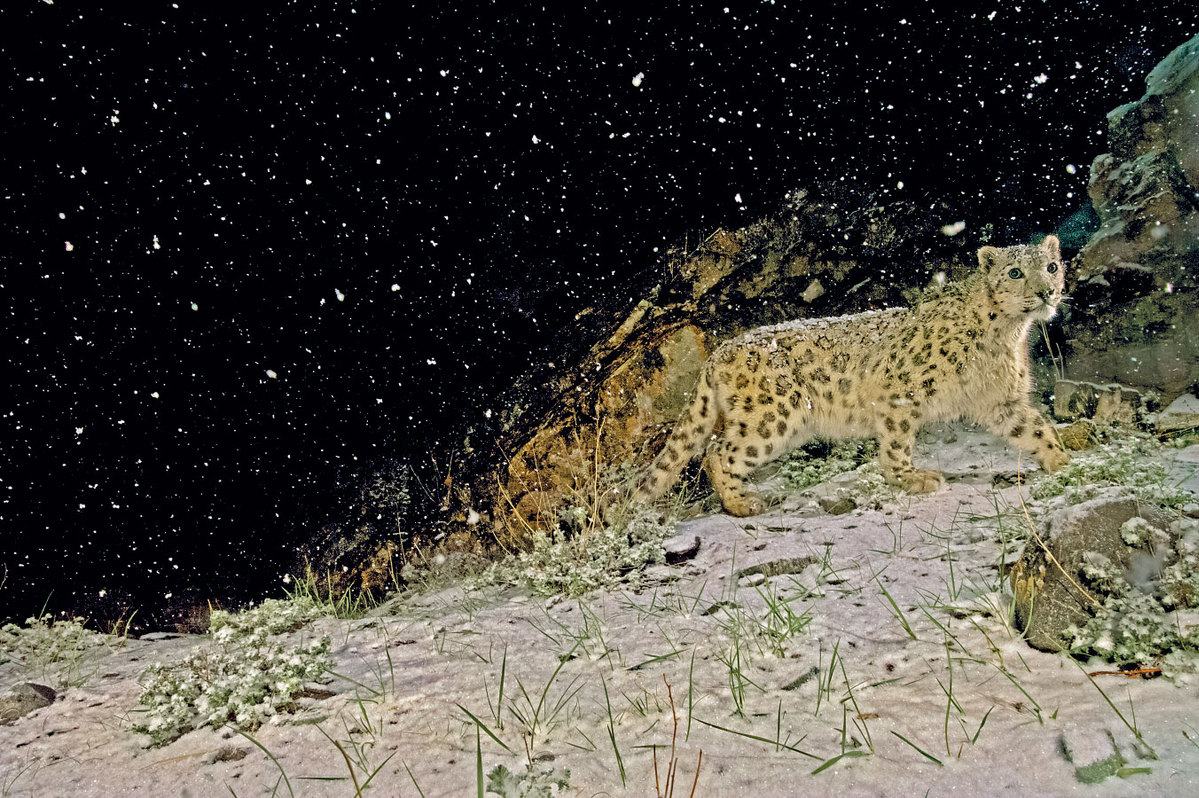Photography competition win can be a big game changer for China


The success of two Chinese photographers at the 2019 Wildlife Photographer of the Year competition could spark a renewed interest in conservation in the country, a leading campaigner against wildlife crime has told China Daily.
Keith Wilson is the co-founder of Photographers against Wildlife Crime, a group that was recently joined by Bao Yongqing, whose image The Moment was this year's overall winner of the top prize, and Fan Shangzhen, who won the Animals in their Environment category for his picture Snow-Plateau Nomads.
Photographers Against Wildlife Crime has just published a bilingual edition of their book of the same name, and Wilson said that having the duo join at a time when Chinese photography is headline news around the world was"magical".
"It's one of the best coincidences of my life," he said. "When things naturally come together like this and they aren't planned, it's magical, I love it.
"People spend a lifetime trying to win this award. I hope that prestige will inspire other photographers and nature lovers in China to respond positively.
"When Bao saw our book, he said 'how can I join?'. I said it's invitation-only and I just invited you. National pride is incredibly important in China. This competition means so much, I'm confident they will respond the right way."
Family ties mean Wilson, who is Australian, is as knowledgeable about China as he is about wildlife. His grandfather was one of the few Westerners living there in the early 20th century and kept detailed diaries about his life, inspiring his grandson's lifelong interest.
The wildlife trade is the world's fourth-biggest illegal market, after drugs, guns, and people, and an unfortunate consequence of China's recent economic boom is that the country has become the world's biggest market for wildlife products-legal and illegal, he said.
"Once China became economically mature with a middle class with disposable income; that's millions of people with the wealth for these products, and a lot of ignorance about where they come from. But it's only in the last few years that people have begun to understand it in Europe too, so you can't demonize one country or culture," he said. "Our goal is to end the illegal wildlife trade in our lifetime, so countries have to collaborate as equals. Solutions can't be reached if people are accusing each other, it has to happen together."
One way Wilson aims to do this is through the newly published book, which he hopes will provoke a response in China.
"We always hoped the English edition would be sufficiently successful to pay for this translation," he said."For every copy sold, other people see it, write about it and talk about it, especially in the social media era. In the right hands, one book can be picked up as a message for thousands of people."
One of the photographers featured is big-cat expert Steve Winter, whose work features frequently in National Geographic magazine, and who won the 2008 Wildlife Photographer of the Year award for his night-time image of a snow leopard.
He said the actions of the few in China were damaging the reputation of the many, but that the younger generation gives him hope.
"It's a small percentage of people who are responsible for this trade, but the whole country is damaged by the label," he said. "But young people have no desire to use endangered species products. If you have the University of Beijing (Peking University) saying these animal body parts have no medicinal value, they hear that and it becomes something we hope they will tell older family members too.
"I don't think the success of the Chinese photographers will make a difference to our efforts; I know it will. In China, there's an enormous group of people passionate about wildlife and these awards will only help that movement grow."
Winter has spent the last quarter of a century bringing the lives of big cats to the attention of the world. And one particular encounter in southern Africa gave him hope that China could help end the wildlife trade completely.
"In South Africa, we were with a tribe who follow the Shembe religion, whose thousands of followers wear leopard skins," he explained. "One of them told my colleague how uncomfortable the skin was because it hadn't been treated properly, and it was so hot. My colleague decided to find an alternative, and eventually found a company making faux leopard skins, with vinyl backing, which were cooler and more comfortable. He got them sent over and there are now lots of people wearing them, and no longer killing leopards. The fake skins came from China."
































